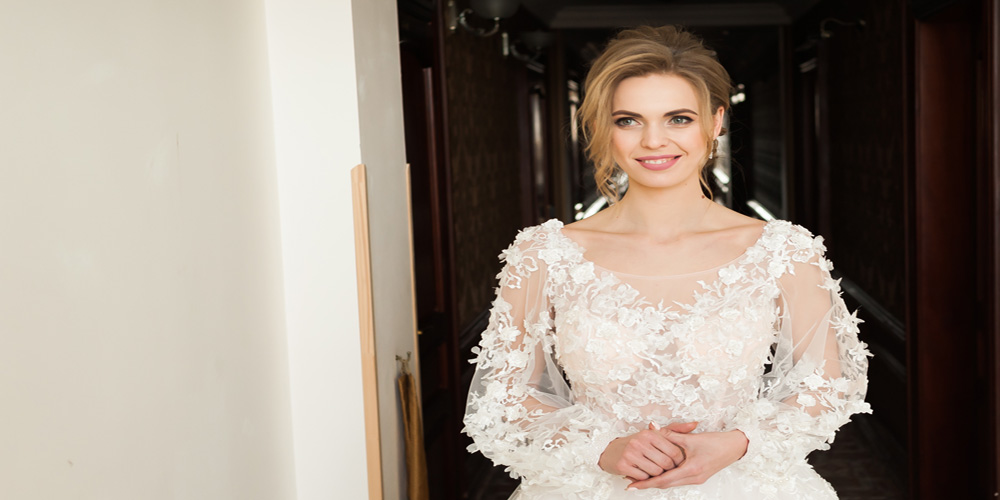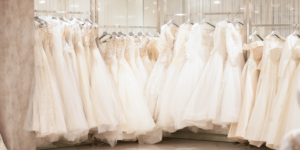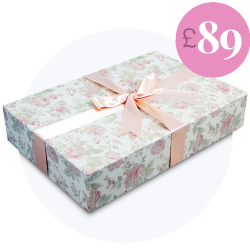Recycling Your Wedding Dress: from Cleaning to Preservation
Recycling your wedding dress may not be the first consideration during the whirlwind of planning and celebrating your special day, but it holds significant importance. By taking steps to properly clean and preserve your wedding dress, you ensure that the significance and beauty of this cherished garment endure beyond the festivities.
Importance of Proper Cleaning and Preservation
Proper cleaning and preservation are paramount in maintaining the aesthetic and sentimental value of your wedding dress. Given the delicate fabrics and intricate embellishments typically used in bridal attire, entrusting your dress to professional cleaners ensures that it receives the specialised care it requires. Professional cleaners possess the expertise to treat various stains and gently clean the fabric without causing damage, which is essential to preserve the dress’s original condition.
Additionally, preservation goes beyond mere cleaning. It involves storing the dress in an environment that protects it from common issues such as yellowing, oxidation, and environmental damage. Utilising a preservation box helps maintain the dress’s shape and structure, creating an optimal storage condition that prolongs its lifespan.
Recycling Your Wedding Dress ~ A Discussion
- Professional Cleaning for Longevity: The expertise of professional wedding dress cleaners plays a crucial role in maintaining the dress’s integrity, ensuring it remains in prime condition for years to come.
- Preservation for Future Use: Proper preservation shields the dress from environmental harm, keeping it in pristine condition and ready for potential future use, whether for personal nostalgic reasons or for future family events.
- Sentimental Value and Family Heirlooms: Recycling your wedding dress can become a family tradition, allowing it to be passed down through generations, preserving precious memories and fostering emotional connections.
- Environmental Impact: By recycling your wedding dress, you contribute to reducing textile waste and promoting sustainable fashion practices, thereby minimising the environmental footprint associated with wedding attire.
- Financial Benefits: A well-preserved wedding dress retains monetary value, offering potential resale or rental opportunities and reducing expenses on future alterations for family members.
These pivotal benefits underline why recycling your wedding dress is a commendable choice, ensuring its beauty and significance endure well into the future.
1. Professional Cleaning for Longevity
Importance of Trusting Professional Wedding Dress Cleaners
A wedding dress is often one of the most treasured garments a person will ever own. Entrusting this cherished item to wedding dress cleaning professionals ensures its preservation and longevity. Expert wedding dress cleaners possess specialised knowledge and equipment designed specifically for delicate fabrics and intricate embellishments. They can identify and treat different types of stains without causing damage to the dress. Hence, relying on professionals guarantees adherence to the highest standards of care.
Removal of Stains and Dirt to Maintain Dress Quality
One of the foremost reasons to opt for professional cleaning is the effective removal of stains and dirt. Wedding dresses can accumulate various substances, such as food spills, sweat, and even makeup traces, which can be difficult to remove with standard cleaning methods. Professional cleaners employ advanced techniques and non-toxic cleaning agents to treat these stains. They address hidden contaminants that may not be visible to the naked eye but could cause long-term damage. By meticulously eliminating these stains and dirt, the original appearance and quality of the wedding dress are preserved, ensuring it remains flawless.
Preservation of Fabric and Embellishments
Wedding dresses are often adorned with delicate fabrics and intricate embellishments, such as lace, beads, and sequins. These components require specific care to maintain their integrity. Professional cleaners understand the intricate nature of these materials and use precise methods to clean them without causing any alterations or damage. They ensure that the dress’s structural elements, such as seams and zippers, remain intact. Preserving the fabric and embellishments extends the lifespan of the dress and maintains its original beauty.
Proper care, managed by professionals, secures the long-term value and pristine condition of a wedding dress. This not only prepares it for future use but also helps in retaining its sentimental value for years to come.
2. Preservation for Future Use
Benefits of Using a Preservation Box
Preserving your wedding dress is not merely about maintaining physical integrity; it’s also a means of safeguarding memories. One significant advantage of proper preservation is the use of a preservation box. These boxes are designed specifically for long-term storage and protection of delicate wedding garments. They typically come with acid-free tissue paper that helps to cushion and support the dress, preventing creases and folds. Additionally, preservation boxes are often designed to keep out dust, light, and moisture, ensuring that the wedding dress remains pristine over the years.
Protection from Yellowing, Oxidation, and Environmental Damage
An often-overlooked aspect of wedding dress care is the protection from yellowing and oxidation. Fabrics like silk and satin are particularly susceptible to these issues. Using a preservation box provides a controlled environment that limits exposure to air, reducing the risk of oxidation. Moreover, these boxes can protect the dress from UV light, which is a significant factor in the yellowing of fabrics over time. Environmental damage such as mildew, mould, and insects can also be mitigated when the dress is stored in a well-sealed, preservation-friendly container.
Maintaining the Dress’s Shape and Structure
Wedding dresses are often intricate garments with complex structures, including boning, beadwork, and lace. Maintaining the dress’s shape requires more than just a careful folding; it needs proper support and protection. Preservation boxes are designed to accommodate the unique structure of wedding dresses. Acid-free tissue paper is used to stuff and support areas like sleeves, bodices, and skirts, helping to preserve their original form. This meticulous method of storage ensures that when you—or future generations—retrieve the dress from the box, it will look as though it was just worn.
With these considerations in mind, transitioning to the next aspect of wedding dress recycling involves acknowledging the emotional resonance that preservation can carry, not just the practical benefits.
3. Sentimental Value and Family Heirlooms
Preserving Memories and Emotional Attachment
A wedding dress is more than just fabric; it embodies the memories and emotions of your special day. Preserving your wedding dress ensures that these sentiments remain with you forever. Each time you glance at your preserved dress, you are transported back to the joy, love, and commitment that defined your wedding day. The intrinsic value of preserving such a significant piece of clothing lies in safeguarding the emotional history attached to it.
Passing Down the Dress to Future Generations
Recycling your wedding dress through proper preservation turns it into a precious family heirloom. This act allows future generations to experience a tangible connection to your heritage and story. Imagine your daughter or granddaughter walking down the aisle in the same dress you wore, adding their unique chapter to its history. The dress, well-maintained and preserved, becomes a symbol of continuity and familial bond, fostering a sense of lineage and tradition.
Creating Family Traditions
Preserved wedding dresses can establish new family traditions. Whether it’s the ritual of wearing the same dress or incorporating elements of it into new gowns, this practice creates remarkable ways to honour and celebrate your family’s legacy. Such traditions can be profoundly meaningful, providing continuity while allowing personal touches unique to each bride. By preserving your wedding dress, you not only commemorate your day but also lay the foundation for cherished family customs.
Preserving your wedding dress transforms it from a personal memento into a cherished family artifact. The dress encapsulates your love story and continues to resonate through future generations, fostering a profound connection and ongoing tradition.
4. Environmental Impact
Reducing Textile Waste
Preserving wedding dresses can have a substantial positive impact on the environment, particularly by reducing textile waste. It’s a little-known fact that the average wedding dress, weighing between 3 to 5 kg, can take up to 200 years to decompose. By choosing to recycle and restore these precious garments, we play a crucial part in mitigating the accumulation of textile waste in landfills. This not only aids in preserving the ecosystem but also aligns with broader sustainability goals.
Minimizing the Environmental Footprint
Recycling a wedding dress also means significantly minimizing the environmental footprint often associated with creating new wedding attire. The production of new dresses involves intensive processes that consume vast amounts of water, energy, and other resources. By opting for a preserved dress, you lower the demand for these resources, thus contributing to a reduction in the carbon footprint of your special day. This environmentally conscious decision underscores the importance of sustainable practices in the wedding industry.
Supporting Sustainable Fashion Practices
By preserving a wedding dress, you’re actively supporting a more sustainable and ethical fashion industry. Sustainable fashion practices advocate for the reuse, recycling, and longevity of garments as effective ways to combat the negative environmental consequences of mass production and fast fashion. Choosing to preserve and potentially reuse a wedding dress promotes these principles, setting a positive example for future brides and grooms.
Moreover, this practice bolsters local businesses that specialise in dress preservation services, contributing to an eco-friendly and circular economy. Instead of purchasing a new dress, reusing a preserved one creates a ripple effect that supports sustainability while preserving the elegance and charm associated with wedding attire.
Understanding the environmental impacts of wedding dress recycling is just one aspect of its broader benefits. These practices not only foster a sustainable future but also pave the way for economical and familial advantages, ensuring the timeless value of your treasured gown.
5. Financial Benefits
Potential for Resale or Rental
Preserving your wedding dress opens up the opportunity for monetising it through resale or rental. A meticulously cleaned and preserved dress holds more appeal in the second-hand market, often fetching a higher price. Brides looking for a sustainable and cost-effective option might choose to rent a preserved dress from previous brides. This market is continually growing, making it a viable financial advantage.
Saving Money on Future Alterations
Investing in the preservation of your wedding dress ensures it stays in prime condition, free from common wear and tear, such as yellowing and fabric degradation. Should a family member wish to wear the dress in the future, the expense of alterations can be significantly reduced. The preserved dress maintains its original structure and design, requiring only minor adjustments rather than major repairs or renovations, ultimately saving money.
Investing in Long-term Value
A wedding dress is a significant investment, and proper preservation enhances this investment’s longevity. Over time, the value of a preserved, heritage-quality dress can appreciate, especially if it gains sentimental value within a family. Moreover, as vintage and antique dresses become more desirable, a well-preserved garment can see an increase in financial value in the market.
Properly maintained and preserved dresses can unlock numerous financial benefits, ensuring that brides not only cherish their gown for sentimental reasons but also recognise its potential long-term value. Considering these aspects, the financial wisdom of preserving a wedding dress becomes evident, adding another layer of importance to the practice.
Recycling Your Wedding Dress
Recycling your wedding dress has numerous advantages, which we’ve explored throughout this article.
- Professional Cleaning for Longevity: Entrusting your dress to professional cleaners ensures the removal of stains and dirt, preserving the fabric and embellishments. This not only maintains its quality but also extends its lifespan.
- Preservation for Future Use: Utilising a preservation box shields the dress from yellowing, oxidation, and environmental damage. It also helps in maintaining the original shape and structure, allowing it to be worn or adored in the future.
- Sentimental Value and Family Heirlooms: By preserving your dress, you keep your cherished memories intact. This makes it possible to pass down the dress to future generations, creating meaningful family traditions.
- Environmental Impact: Recycling reduces textile waste and minimises the environmental footprint of wedding attire, promoting sustainable fashion practices. By reusing the dress, we contribute to a more eco-friendly economy.
- Financial Benefits: Preserving the dress opens up opportunities for resale or rental. It also helps save money on future alterations for family members. In the long term, investing in preservation can enhance the dress’s value as vintage or antique attire often appreciates over time.
Encouragement to Consider Professional Cleaning and Preservation
As you can see, the benefits of recycling your wedding dress are multifaceted, encompassing sentimental, environmental, and financial aspects. Trusting professionals for cleaning and preservation is crucial. Their expertise ensures that your dress remains in pristine condition, free from contaminants, and well-protected against future damage.
Final Thoughts on the Importance of Dress Recycling
Preserving your wedding dress is more than a mere act of keeping a garment. It’s an investment in memories, sustainability, and future value. By taking the step to clean and preserve your dress properly, you contribute to a legacy of eco-consciousness while passing down a treasured memento to future generations. Consider the impact and take action to ensure your wedding dress remains a beloved artefact for years to come.










